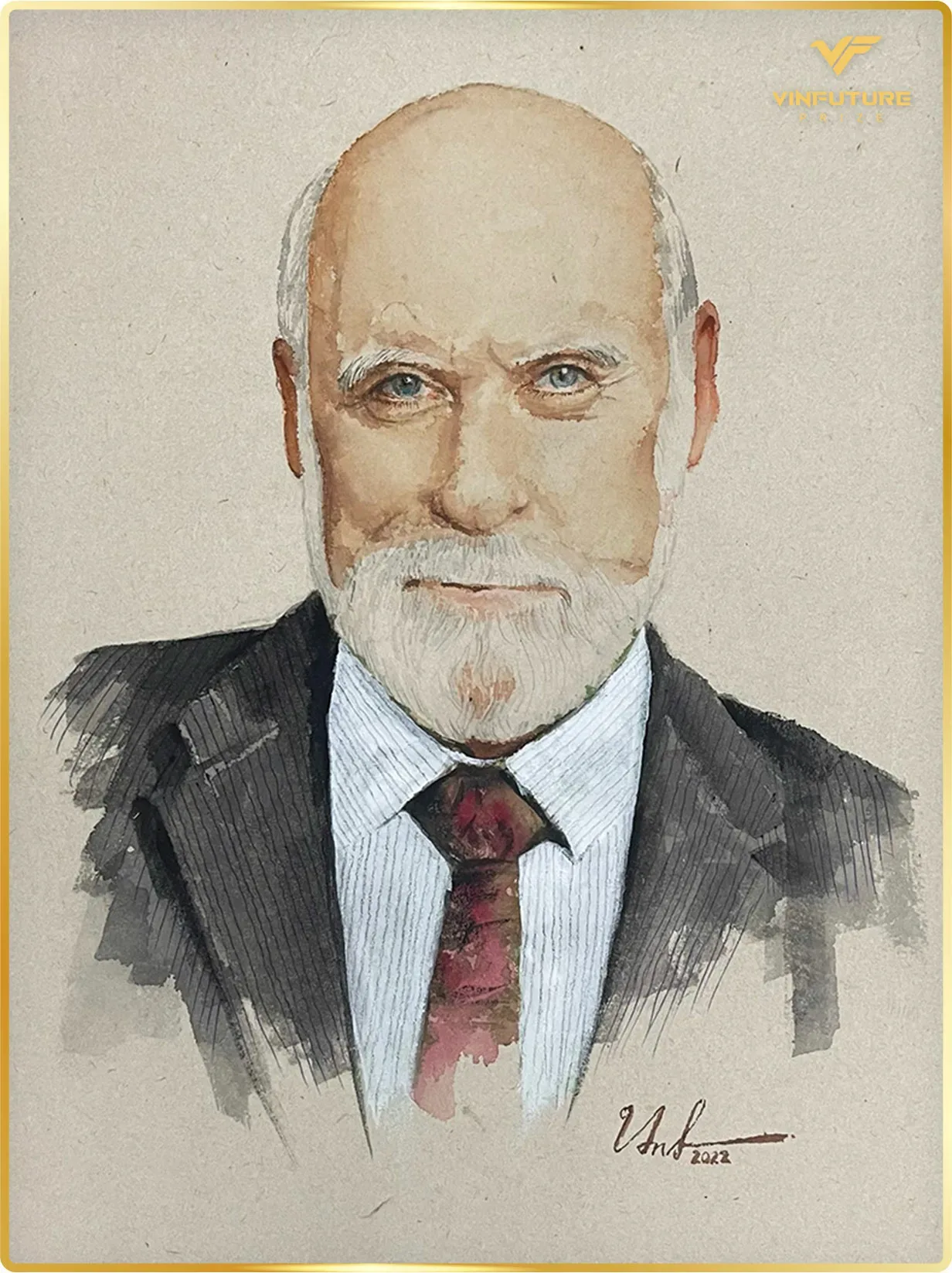BIOGRAPHY
Vice President and Chief Internet Evangelist for Google; former President of the Association for Computing Machinery (ACM)
Dr. Vinton (Vint) Gray Cerf, born 23 June 1943 in New Haven, Connecticut, is an American computer scientist who is considered one of the ‘Fathers of the Internet’. He obtained a BSc in mathematics at Stanford University and a Masters (in 1970) and Ph.D. (in 1972) in Computer Science from University of California, Los Angeles (UCLA). As a graduate student at UCLA, Cerf became deeply involved in the ongoing discussion and development of the ARPANET. Dr. Cerf first met Dr. Kahn when Dr. Kahn came to UCLA in 1969 to help test the nascent ARPANET.
Dr. Cerf joined Stanford as an assistant professor from 1972 to 1976 where he conducted research on packet network interconnection protocols. Dr. Cerf worked together with Dr. Kahn to formulate the fundamental design principles of internetworking, specified the Transmission Control Protocol and Internet Protocol (TCP/IP) to meet these requirements, prototyped TCP/IP, and coordinated several early TCP/IP implementations. Together with many others, they led TCP/IP to become the global standard that powers the Internet today.
In 1976 he joined the US Defense Advanced Research Projects Agency (DARPA) as a program manager at the Information Processing Techniques Office (IPTO). He worked there until 1982 where he funded various groups to develop TCP/IP, packet radio (PRNET), packet satellite (SATNET) and packet security technologies.
Dr. Cerf left ARPA in 1982 to become Vice President of Digital Information Services at MCI Communications Corp., where he engineered MCI Mail. In 1986, Cerf joined Kahn again at the Corporation for National Research Initiatives (CNRI), founded by Robert Kahn. While there, Cerf arranged for MCI Mail to become the first commercial email service to connect to the Internet in 1989. Cerf later returned to MCI as Senior Vice President from 1994-2005. In 2005 Dr. Cerf joined Google as Vice President and Chief Internet Evangelist. He was appointed by President Obama to serve a term on the National Science Board beginning in February 2013. Cerf is a Fellow of many institutions including the US National Academy of Engineering, US National Academy of Science, Association for Computing Machinery, the Institute of Electrical and Electronics Engineers, the British Royal Society and the Swedish Royal Academy of Engineering. Cerf has been inducted into the National Inventors Hall of Fame and has many awards recognising his leadership and contributions to the Internet. https://www.nist.gov/director/vcat/biography-dr-vinton-g-cerf
Cerf has also served as Vice President of the Corporation for National Research Initiatives (CNRI), founded by Robert Kahn. He was Founding President of the Internet Society and served as Chair of the Visiting Committee on Advanced Technology of the US National Institute of Standards and Technology. He was a member of the US Presidential Information Technology Advisory Committee (PITAC) and continues to attend various national committees focused on cyber-technology.
SUMMARY OF WINNING ENTRY | THE GLOBAL NETWORK TECHNOLOGY
Together with Dr. Kahn, Dr. Cerf led the design and implementation of the Transmission Control Protocol and Internet Protocol (TCP/IP) that are the basis for the current Internet. They formulated fundamental design principles of networking, specified and prototyped TCP/IP to meet these requirements, and oversaw several implementations of the protocol that enabled TCP/IP to become the global standard for the Internet.
SCALE OF IMPACT
The impact of the Internet is global and universal across all domains and walks of life. It is the backbone for much of the information processing and communication activities across the world. The World Wide Web, developed by Sir Tim Berners-Lee, is an application platform supported by the Internet. Many, if not most, socio-economic activities today are built on the Web.
MEANINGFUL CHANGE
The Internet has enabled global collaboration on all aspects of society, industry, economic development, media and communication and governance. It is the engine that underlies our daily activities both at the personal and societal level. It is no exaggeration to say that without the Internet and the World Wide Web the world would not be as it is today.








